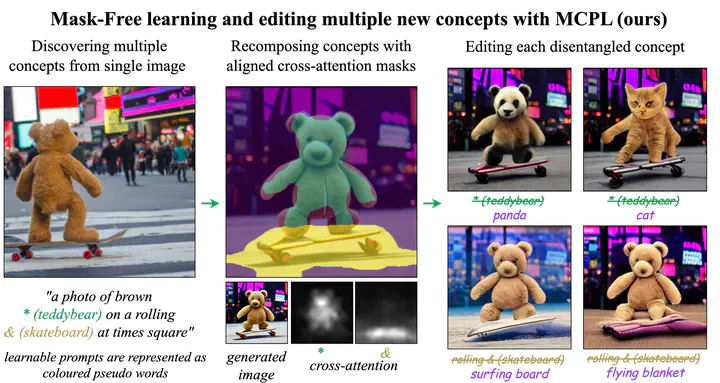An Image is Worth Multiple Words: Discovering Object Level Concepts using Multi-Concept Prompt Learning

Abstract
Textural Inversion, a prompt learning method, learns a singular text embedding for a new ‘word’ to represent image style and appearance, allowing it to be integrated into natural language sentences to generate novel synthesised images. However, identifying multiple unknown object-level concepts within one scene remains a complex challenge. While recent methods have resorted to cropping or masking individual images to learn multiple concepts, these techniques often require prior knowledge of new concepts and are labour intensive. To address this challenge, we introduce Multi-Concept Prompt Learning (MCPL), where multiple unknown ‘words’ are simultaneously learned from a single sentence-image pair, without any imagery annotations. To enhance the accuracy of word-concept correlation and refine attention mask boundaries, we propose three regularisation techniques: Attention Masking, Prompts Contrastive Loss, and Bind Adjective. Extensive quantitative comparisons with both real-world categories and biomedical images demonstrate that our method can learn new semantically disentangled concepts. Our approach emphasises learning solely from textual embeddings, using less than 10% of the storage space compared to others.